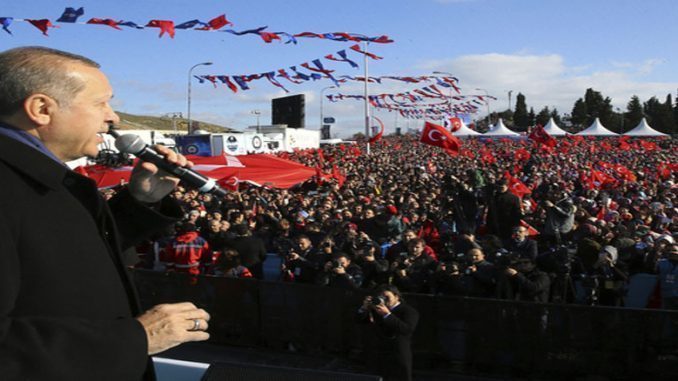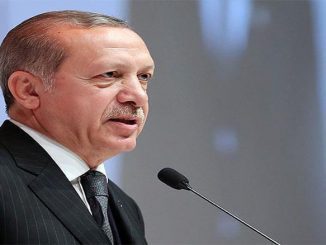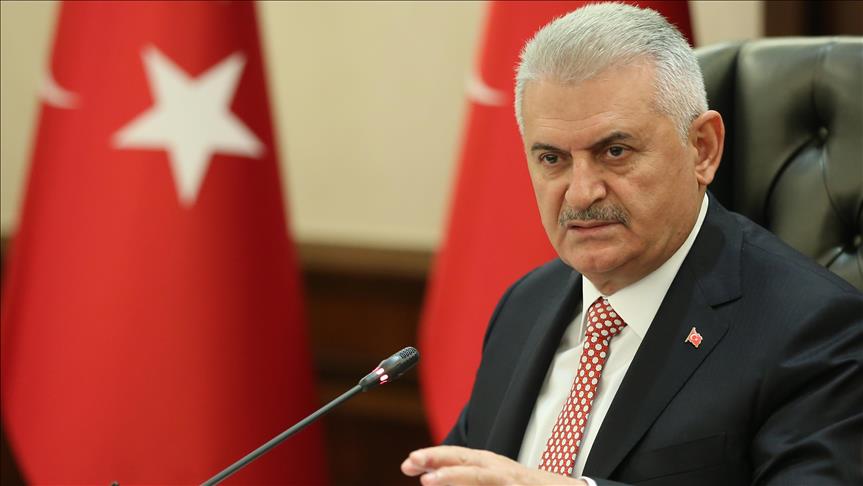
The Turkish Presidency is already preparing a to-do list to immediately carry out certain regulations stated in the constitutional amendment ushering in a shift to an executive presidency in the event that the system change is approved in the referendum on April 16.
According to the presidential sources, if the amendment passes in the referendum, the first move of the ruling Justice and Development Party (AKP) will be to formally re-establish President Recep Tayyip Erdoğan’s link with the AKP.
In order to do this, an extraordinary congress will be convened to elect Erdoğan as the leader of the AKP, three years after he left the chairmanship. Erdoğan, the founding leader of the AKP, ruled the party until he was elected president in mid-2014.
After taking the party leadership back, Erdoğan will be able to convene the AKP’s parliamentary group and address AKP lawmakers on a weekly basis. He will also work at the AKP headquarters as party leader once a week.
According to the AKP’s plan, Erdoğan will also attend general assembly meetings in parliament both as a president and as leader of the AKP.
Prime Minister Binali Yıldırım, meanwhile, will continue in his post until the next parliamentary elections.
If the public approves the constitutional changes, the presidency will be re-designed in accordance with two vice presidents, with offices for those two vice presidents and their staff.
Early elections
The AKP is considering possible early elections in the event of both results of the referendum, including holding an early election in November 2017 if the public does not vote for the amendment “in order regain the public’s trust.”
If the public votes in favor of the changes, the relevant legislation is planned to be completed within six months, following by a possible early election again in November 2017.
The most important subject in the preparation of an early election will be the passing of an election act at parliament, which would require parliament to work all summer.
Presidential system between supporters and opponents
Erdogan’s supporters see the presidential system as a guarantee of stability at a time of turmoil, with Turkey’s security threatened by the wars in neighboring Syria and Iraq, and by a spate of Islamic State and Kurdish militant attacks.
Opponents fear a lurch toward authoritarianism in a nation which has seen tens of thousands of people, from teachers and journalists to soldiers and police, detained since a failed coup attempt last July.
Erdogan has warned those who vote against the changes will strengthen Turkey’s enemies, including the Kurdistan Workers Party (PKK) militant group, which has fought the state for more than three decades from camps in the Qandil mountains of northern Iraq.
“Who says no? The PKK says no. Who says No? Qandil says no. Who says no? Those who want to divide this country say no. Those who are against our flag say no,” Erdogan told members of a pro-government think-tank in Istanbul, his speech frequently interrupted by chants of his name from the conference hall.
The executive presidency was needed, Erdogan said, to avoid the fragile parliamentary coalitions of the past. He said the 65 governments in the 93 years of the modern republic had each lasted an average of just 16 months.
Two opposition parties – the secularist CHP and the pro-Kurdish HDP – say the change would strip away balances to Erdogan’s already considerable influence over government.
“This is definitely not going to be a fair referendum. We know that the pro-Erdogan media will have a broadcasting policy that completes ignores the opposition,” CHP leader Kemal Kilicdaroglu told a roundtable with journalists in Ankara.
“It will be presented as if we are running against the state,” he said, adding that 90 percent of Turkey’s media outlets were under government influence.
Supporters of the nationalist MHP, the fourth party in parliament, are divided over the proposed changes. Its veteran leader Devlet Bahceli and many of its MPs support the plans, but prominent party member Meral Aksener, who mounted a failed leadership challenge last year, is against.



